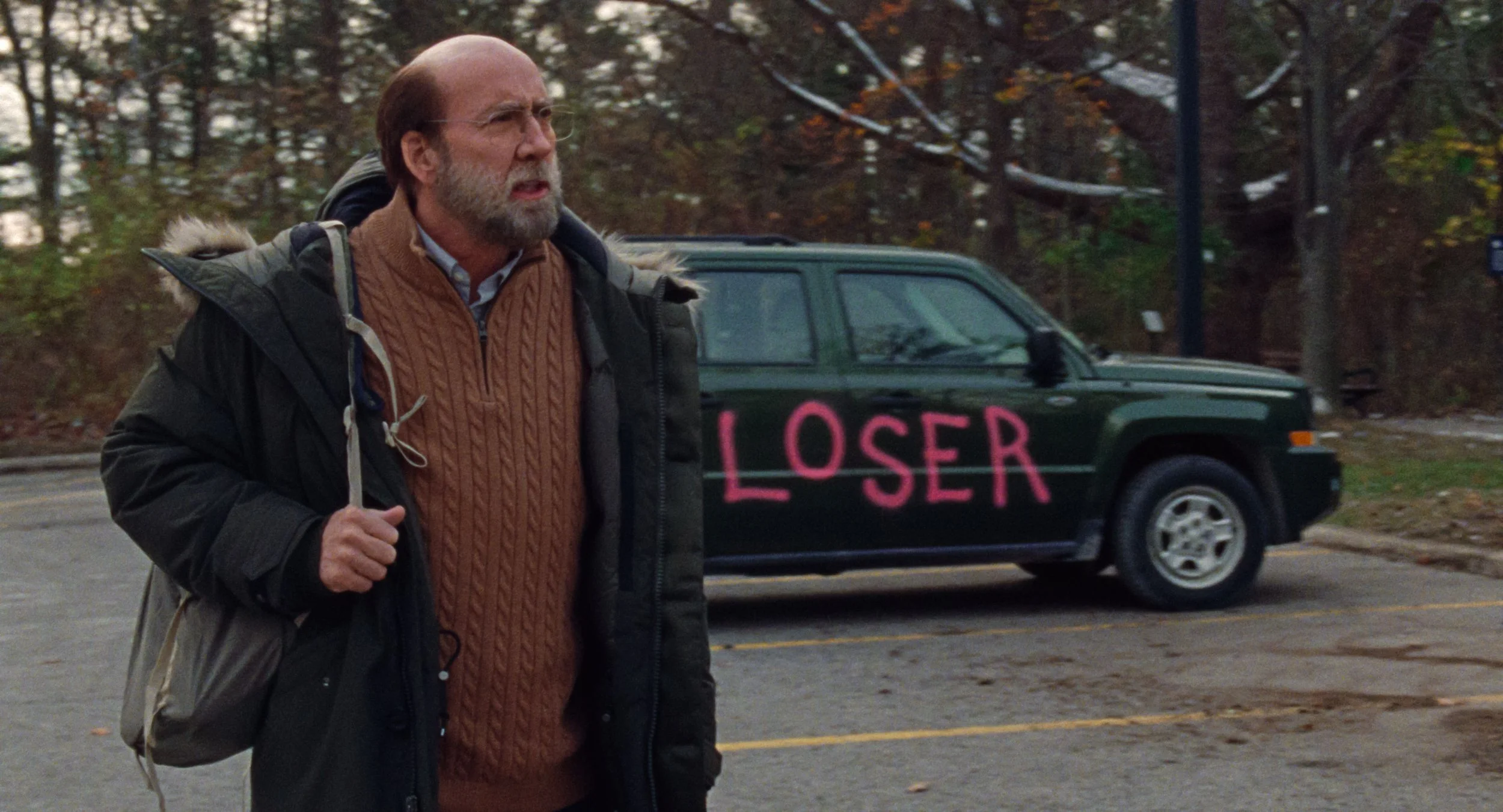Dream Scenario: The Many Metaphors of Nicolas Cage's Presence in Your Head
By Jim Slotek
Rating: A
A surrealist comic drama where almost everything is a metaphor for something real and current, Kristoffer Borgli’s Dream Scenario is the kind of film that inspires talk afterward and allows Nicolas Cage a platform to really perform.
At its base, the movie is a clear metaphor for the poison that is fame. It’s also, maybe, a screed against cancel culture, and the unhealthiness of society’s unprecedented connectivity.
Paul Matthews (Nicolas Cage) finds his metaphysical fame turns suddenly sour.
We are one, via social media and other tech-based connectors. And in Dream Scenario, all are inexplicably connected to Paul Matthews, a nebbish biology professor who is notable for absolutely nothing. Even his academic specialty, how species like zebras adapt to threats by blending into their environment, denotes going through life unnoticed.
He is in a comfortably ardor-less marriage to Janet (Julianne Nicholson), with whom he has two daughters who basically suffer his presence.
Then, suddenly, Paul starts showing up in people’s dreams. The dreams themselves can be violent (animal attacks, accidents, earthquakes, etc.), but Paul is always a passive observer. And when the dreamers awake, they and he remember it all vividly.
So it is that an article on Paul’s experience, written by an ex-girlfriend journalist, leads millions, almost pilgrimage-like, to his Facebook page. Paul Matthews is suddenly one of the most famous people in the world, for his presence in people’s heads.
Is it aliens? New technology? Dream Scenario retains its parable status by not bothering to explain itself. There are any number of ways people can become famous. This is just one more.
And it hardly need be said, fame has a price. Deranged people want to kill him, women he doesn’t know are sexually obsessed with him, some want to profit off him (Michael Cera has a standout role as a crass marketer who lays out the Paul Matthews Strategy in a boardroom).
And as the downside takes its toll, the dreams change. They become darker, and violent, with Paul as a participant. Overnight, he goes from a beloved oddity to a loathed pariah who is banned from his daughter’s recital and whose food is spat on at restaurants.
This last is where Cage’s presence is best felt. It’s hard to imagine a world, let alone a film, where he is a non-participant. He plays that role well, but his evolution into a soured, angry cornered animal brings out the dark Nicolas Cage we love to watch. He doesn’t want to be in people’s dreams doing the things he does. Or he says he doesn’t.
But that doesn’t make a difference to a world that cuts him off completely, from his teaching (traumatized students refuse to show up) to his marriage to his fleeting marketability.
Fittingly, the mordant horror filmmaker Ari Aster is in the creative mix as a producer of Dream Scenario. What he and writer/director Borgli have come up with here is a terrific take on hell-is-other-people.
As humans, we can be like the aforementioned zebras. But the existential separation we have, even as we live in groups of millions, may be as important to our sanity as how we connect.
Dream Scenario. Starring Nicolas Cage, Julianne Nicholson, Michael Cera. Opens in theatres Friday, November 24.



